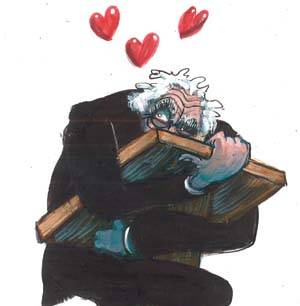The debate over the place of faith in state schools continues. A few weeks ago a report on the imbalanced intakes of state funded faith schools caused a heated dispute, with faith school proponents issuing a report of their own claiming that the schools do not promote social division. Last week, the closure of a Muslim free school in Derby over inappropriately strict Islamic practices raised questions of proper control of England’s free schools.
A report released today by the National Secular Society (NSS) now addresses the issue of visitor groups’ proselytizing in state schools. The report, titled Evangelism in State Schools, underlines that evangelising is not only a concern of state funded faith schools, but also occurs in non-religious schools that allow visitors to help in Religious Education (RE) lessons or legally mandated collective worship. While the intention of inviting visitors to participate in school activities may be to introduce different faith groups to pupils, the report suggests that a particular group of believers are monopolising this opportunity:
“While the non-statutory guidance refers to visitors of ‘different religions and non-religious groups’, the reality is that most visitors to RE lessons are evangelical Christians who have organised themselves to best exploit the opportunities made available to them by schools seeking to fulfil their legal obligations,” the report states.
The report lists 18 evangelical groups that regularly participate in state school activities, most of which are clearly motivated by “bringing the good news to children”, but some also promote creationism or even faith healing. The report expresses concern that parents are often unaware of these groups visiting their children’s schools, and have little chance to withdraw them from the activities. According to report, the schools, Local Education Authorities, and the Department of Education have not shown much concern over proselytizing in schools: the report quotes several parents who have faced hostility, obstruction and indifference from authorities when questioning evangelical churches’ involvement in their children’s schools.
Besides bringing a biased view into RE classes, evangelical groups often manage to affect other subject areas as well, the report says. The authors for example express concern that teachings infused with biblical creationism, even if presented in an RE lesson, may sound to younger pupils like scientific truths. The report also points to evangelicals spreading their views on sex and relationship education, with “persistently inaccurate and biased material” that can have “serious long-term effects on the lives of pupils of both sexes but especially girls.”
“On a recent visit to my son’s school ‘Matt the Christian’ was ‘discussing’ the merits of celibacy before marriage... Matt also said that there wouldn’t be any paedophiles if there was more celibacy. On a previous occasion Matt has said that because he follows the bible, as the man in his house, he has the final say in any decision. This group visits the middle and upper schools on a regular basis,” a parent describes the message of evangelical visitors at her son’s school.
The NSS has written to the Secretary of State for Education, Michael Gove, urging him to issue national guidance to schools setting out best practice for working with external visitors and contributors, and particularly religion and belief groups. The NSS is also working on a more long-term project on the subject.
In related news, reports emerged yesterday that a London Jewish secondary school has come under criticism for hiding exam questions that went against its beliefs. An investigation on the Yesodey Hatorah girls' secondary school, a state-funded faith school, was launched by the Oxford, Cambridge and RSA Exam board after a formal request from the NSS. The NSS had received complaints that the school’s teachers had redacted questions in the GCSE science exam this year.
In June, an adviser to Orthodox schools described the government’s plan to place greater emphasis on evolution in biology classes as “problematic” to Orthodox Jewish schools. The NSS reports that earlier this year, the Yesodey Hatorah school’s principal, Rabbi Avraham Pinter had said that "sometimes Charedi schools, if they find anything in the paper which could be offensive to parents, advise children to avoid that question." While the specific questions blacked out are not known, the investigation confirmed pupils were left disadvantaged by being unable to access 3 marks out of 75 for a unit in a higher GCSE science exam, and 1 mark out of 75 for a unit on a lower paper.

